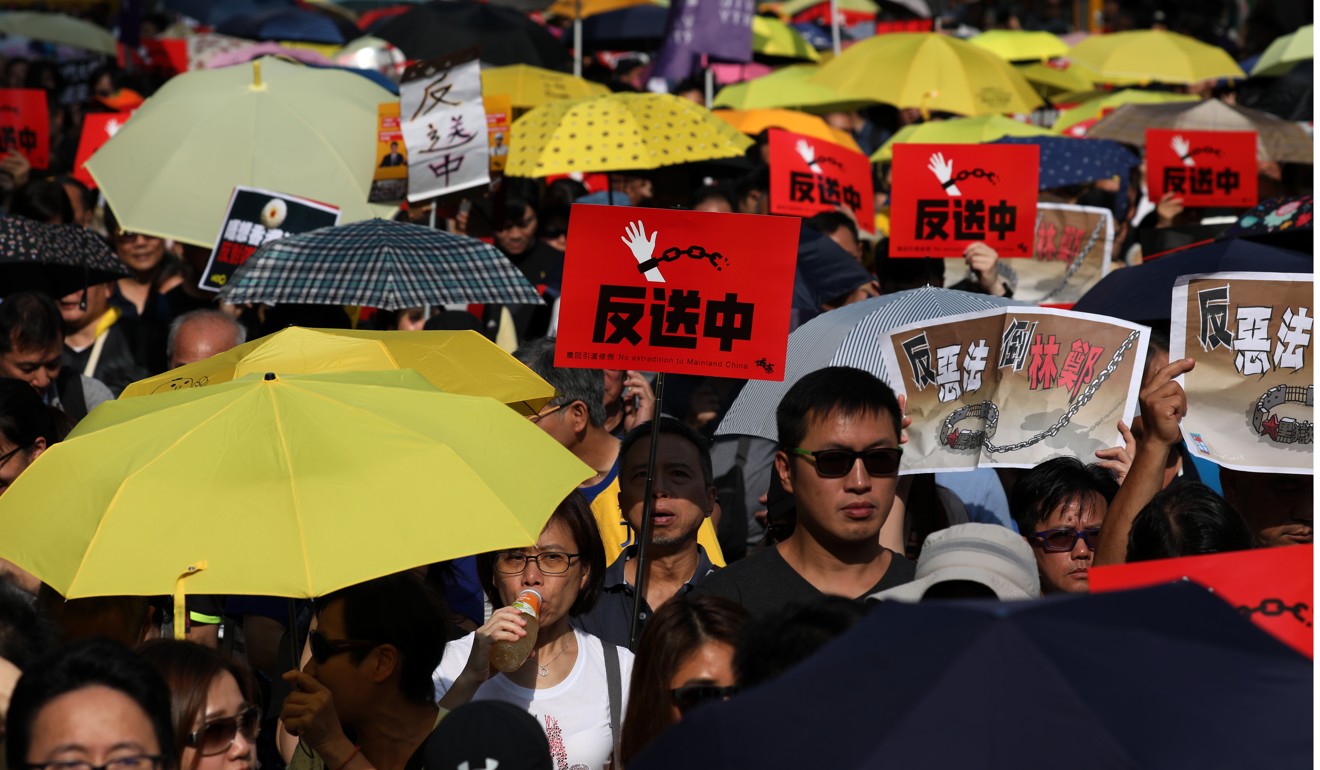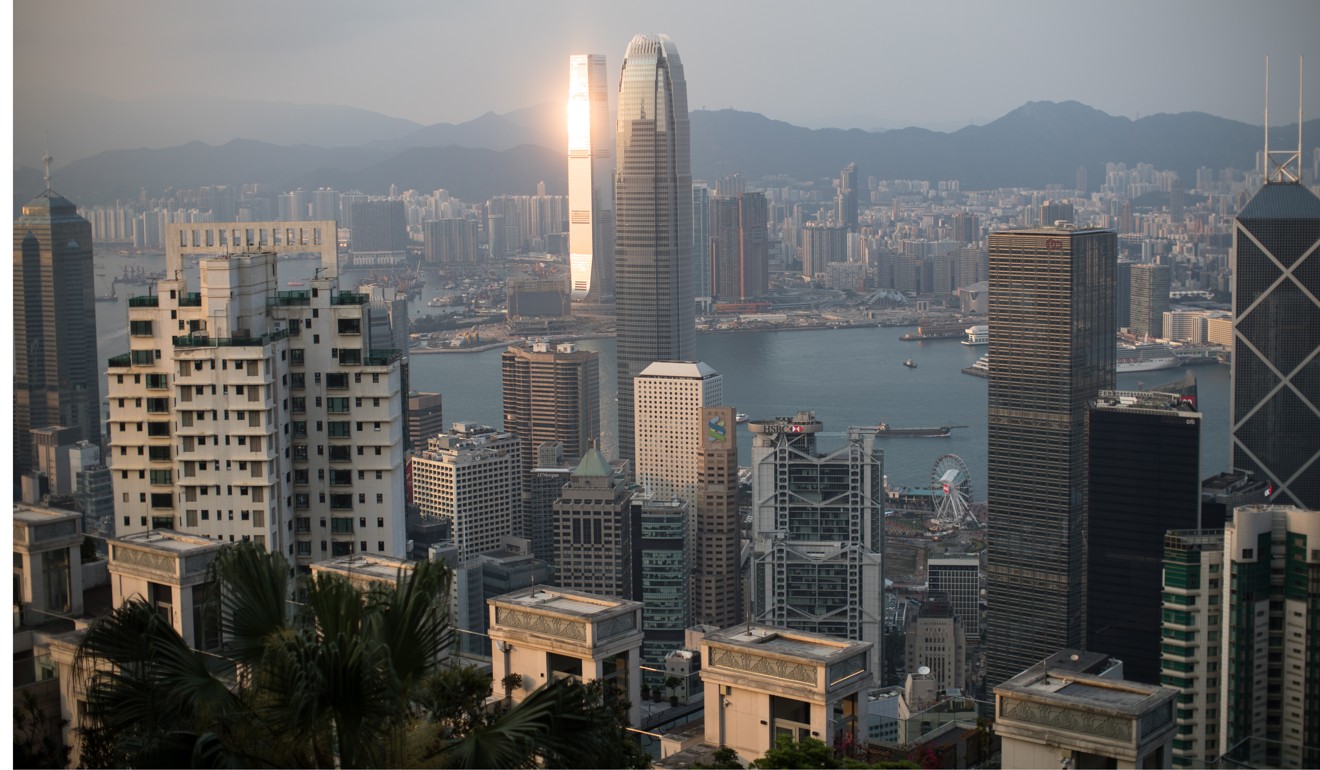
Exclusive | Hong Kong’s special status must remain a shield for the city as US-China trade war intensifies, says American Chamber of Commerce chief Tara Joseph
- AmCham president warns any change to US-Hong Kong Policy Act would be damaging
- She says biggest risk for city is whether there is belief that Hong Kong’s valued rule of law is slipping
A special arrangement under which the United States treats Hong Kong differently on politics, trade and diplomacy from the rest of China is important for the city and must be preserved despite mounting pressure to change that status, according to an influential business chamber.
Tara Joseph, president of the American Chamber of Commerce (AmCham) in Hong Kong, warned in an exclusive interview that any changes to the arrangement – which is covered by the US-Hong Kong Policy Act – would be damaging.
“There are many aspects to it that are really important such as customs, drug enforcement and cultural cooperation,” Joseph said on Friday. “So I don’t think people would like to see the relationship between Hong Kong and the US unwind. It would be quite damaging to see the US’s Hong Kong Policy Act questioned.”

The arrangement differentiates Hong Kong from mainland China, which means US tariffs on Chinese goods covered in the trade war do not automatically apply to the city.
It also allows Hongkongers to apply for US visas independently, permits the city to buy sensitive technologies under US export controls, and ensures free exchange between the US dollar and Hong Kong dollar.
Fugitive plan risks ‘shooting Hong Kong in the foot’, says American chamber
Fears have lingered of potential changes to the special status after a US Congress-funded report late last year recommended a review of certain arrangements in the policy act. The act was enacted in 1992 based on the principles of the Sino-British Joint Declaration ahead of the handover of Hong Kong’s sovereignty to China in 1997.

It made the recommendation based on its observation that Beijing was increasingly meddling with the city’s policies and rule of law.
Then the US’ top diplomat in Hong Kong, Kurt Tong, added fuel to the fire, saying the report “certainly deserved careful review”.
While declaring AmCham as a non-government organisation with no political affiliation, Joseph said the biggest risk for the city was whether there was sentiment that Hong Kong’s valued rule of law was slipping.
Separate US trade policy for Hong Kong will not end, envoy says
“It is a slow burn to an economy that serves as a regional headquarters for over 1,500 multinational companies,” she said, adding the city had already lost out to rival Singapore in enticing multinational firms, especially in the technology sector, to set up bases in Hong Kong.
She urged the Hong Kong government to get back on track to boost the city’s competitiveness and stop distracting itself with the extradition bill.
“Hong Kong is still known as the freest economy in the world, with connectivity, efficiency and a dynamism that is widely appreciated,” Joseph said. “Why put that at risk during an already heated trade war by adding to concern about Hong Kong’s autonomy?”

Asked if she was concerned about any leakage of technology between Hong Kong and the mainland despite a firewall being stipulated under the policy act, she said: “It has been looked at quite closely and will be looked at quite closely.”
She added that during the annual visit of an AmCham business delegation to Washington next month, concerns over technology leakage would be raised.
‘Don’t go too far’, China tells US in phone call about recent disputes
Despite the differential treatment received under the act, she warned that trade ties between the city, the US and China were so intricate that any tightening of export controls on the technology sector could expose Hong Kong to wider repercussions.
“If the trade war continues, and there is no deal to encourage a lowering of tariffs, the US consumer could soon start to feel the pain, adding to the toll,” Joseph said.
Note: an earlier version of this story said “a US Congress-funded report late last year recommended a review of the policy act”. In fact, it recommended a review of certain arrangements under the policy act, rather than the policy act as a whole. The top US diplomat in Hong Kong, Kurt Tong, was not referring to the entire policy act when he said the report certainly deserved careful review.

